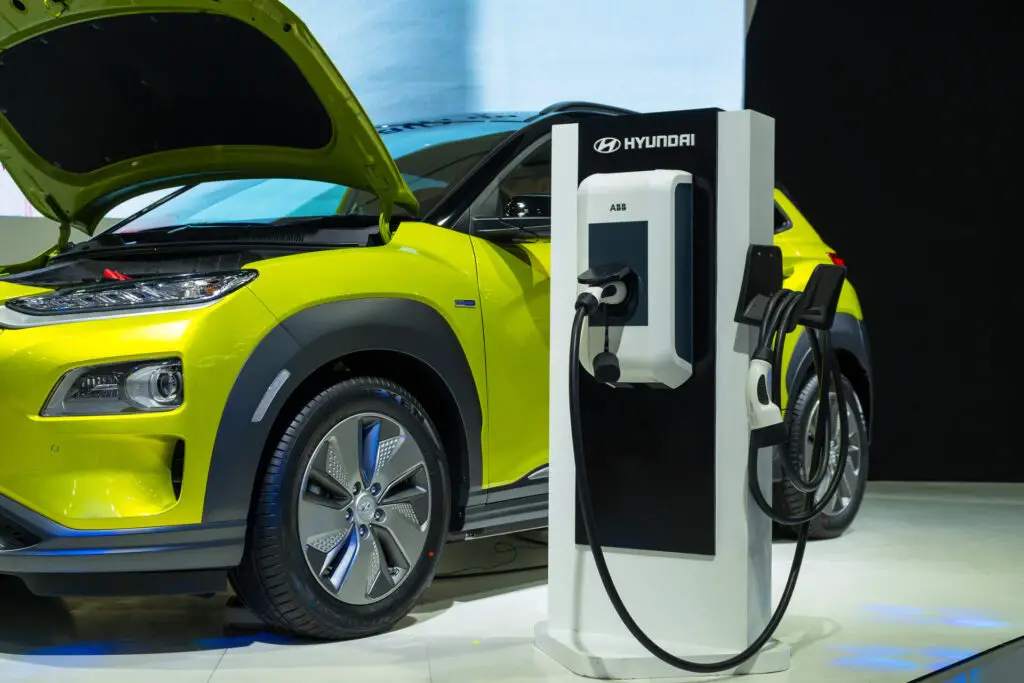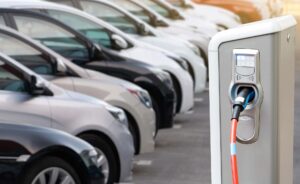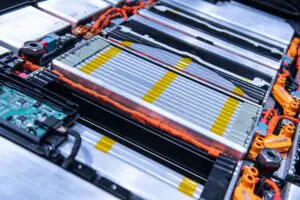Owning a car is not only a big responsibility, but it’s also a big expense. You constantly have to invest and spend your money on your vehicle. You might think you paid your dues once you left money at the dealership, but there are many additional car expenses you should take into consideration.
Knowing Your Car Expenses Is Important When Looking to Buy a New Car
With the high prices of cars these days, buying a new car can truly be a challenge. But at the same time, owning a car in the US is like having utilities in your home – it’s a necessity, not a luxury. There are around 300 million vehicles in the US, so how do people afford them all? Most people don’t realize you need a lot more money than the exact price of the vehicle. Cars require fuel, maintenance, and many other ways of investing. Owning one is definitely not cheap. So, how much money do you actually need to own a car?
How Much Is the Cost of Annual Car Ownership?
You might believe that the only added expense you will have when it comes to your car is the cost of fuel. But that costs only about a couple of thousand dollars a year. If that’s the case, how come the average cost of owning a car is a little less than $11,000 annually if AAA’s Your Driving Costs study is to be believed? That means your monthly costs for your car are a little under $900, $894 to be exact.
This study was done with average new vehicles in mind, the ones that were driven 15,000 miles a year. And of course, this is just a rough number you should keep in mind to give you an idea of how much it could cost. The real cost of your car depends on many factors, the biggest one being which vehicle category you choose to drive. SUVs and full-sized or medium sedans will be more expensive to maintain than small sedans. Hybrid cars will be more affordable than regular gas ones or electric cars, and so on.
How Do I Know if I Can Afford a Car with My Paycheck?
Shopping for a new car is a fun and exciting thing, but you shouldn’t get carried away before you figure out how much exactly you can afford to spend each month. The recommended amount of money you should be spending on your car is 10%-15% of your monthly income. And that doesn’t mean 15% of your paycheck should be going just toward your car payments.
That means that a maximum of 15% of your paycheck should pay for all car-related expenses. So, if you earn $4,000 each month, a maximum of $400-$600 should go toward your vehicle expenses. Sit down and do some math, and consider all of your other expenses. Don’t spend your last dime on your car if your other living expenses, such as rent, are high. Also, think about your existing debt as well – perhaps you have some student loans, credit card debts, or medical bills you need to take care of. All of that could lower your car budget.
What Are the Costs of Owning a Classic Car?
Old-timer lovers and car enthusiasts know that there are many advantages to owning a classic car. But there are also some cons, and most of them include the costs of trying to upkeep and maintain the quality of the car. There are many obstacles to owning a vintage car. For starters, they will spend a lot of time at the mechanic’s getting something fixed, and that will rack up a lot of bills in a short amount of time.
There are a lot of car parts you will either want to replace or will have to in order to keep the car running. The problem with that situation is that some of those parts are extremely hard to find and rare, not to mention expensive. Just imagine having to replace a valve stem or a car battery on a vehicle from the 1950s. It’s not an easy task. Another disadvantage to driving an old-timer is the fact that they are not exactly fuel efficient, so you will be filling up the tank quite often.
How Much More Expensive Is It to Own a Luxury Car?
Besides the difference in the price point of the car itself, how much more expensive is it to drive around in a luxury car and maintain it? Of course, when you pay for a luxury item, you pay for the quality of it. But one of the cons is that while those quality parts will last much longer and perform much better, they are also a hundred times more expensive to replace than regular car parts. Just imagine your clutch master cylinder going bad or having to replace U-joints. Even changing windshield wipers or perhaps brake fluid is expensive for these cars, not to mention your side mirrors or tail light.
Another hidden disadvantage of these cars is the fact that you will be stopping at the gas station to fuel up every five minutes. Okay, not literally, but these cars aren’t exactly known for their fuel efficiency. They all have extremely powerful engines that require a lot of fuel to keep them running. And not only will you be filling up your tank more often, but quality cars are also meant to run on quality fuel, so don’t buy a luxury car if you’re not willing to spring for premium fuel. You might not think that the difference in the price point will be that obvious, but you will have a few thousand dollars less annually.
What Are All the Car Expenses You Should Take Into Consideration?
When contemplating whether or not to purchase a car, you have to take into account the total cost of owning a car. There are many factors at play, and car owners often forget some of the things they will eventually have to pay for. So here is a detailed list of all the car expenses you will be facing at some point, so you won’t be surprised when your mechanic hands you a bill.
The Cost Of the Vehicle Itself
The biggest expense you will be facing as a car owner is obviously – the cost of the vehicle itself. Depending on the type of vehicle you choose, the starting price of a new vehicle can range anywhere from $15,000 to hundreds of thousands of dollars. Used vehicles could be found in great shape for as much as a couple of thousand dollars. So, prepare yourself for monthly loans and lease payments, but know that the price of the car is only half the total cost of ownership.
Paying for Gas or Electricity
Once you have a car, you need to keep it running with either fuel or electricity in case you own an EV. And both of those options cost money. Of course, depending on the size and type of the vehicle, your costs will vary – EVs are much cheaper, and cars that run on gas vary in fuel efficiency. SUVs will burn through fuel much quicker than a hatchback, fuel prices change frequently and they’re unpredictable, and so on. But rest assured that it will cost you at least $2,000 annually to get gas or charge your car.

You Have to Register Your Car – There Are Taxes and Fees Involved
License, registration, and various fees and taxes that are associated with legally owning a car are probably the cheapest cost on this list. But nevertheless, it still costs money, and you have to factor it into your spending. According to AAA, you will need around $700 for all of the above. However, the cost of registration, fees, and taxes is different from state to state, and it also varies depending on the type of car you own. North Dakota is the most expensive state, while Georgia is the most affordable one, bar none – the total fees will amount to about $20.
Repairs and Regular Maintenance
You need to take care of your car. That implies having regular checkups at your mechanic’s, washing your car (your seat belts as well,) changing the oil, rotating the tires, and switching from winter to summer tires, which is not cheap. And although your warranty will cover most of the repair expenses for a couple of years, you will still have to pay for a lot of things. For example, you will need anywhere from $60-$130 to change a single flat tire.

Think About Where You Will Park Your Vehicle
Parking is probably the most variable expense when it comes to owning a car. You can end up paying hundreds of dollars a month or not even a cent. Of course, the second option is much better, and it’s mostly meant for people who own houses with a garage or a driveway or any other kind of free parking. But unfortunately, there are also people who will have to pay a monthly fee simply to have their car legally parked. These fees can range anywhere from $50 to $350, it depends on the city. Bigger cities are more expensive, and the average monthly fee is around $150.
The Cost of Insurance
While insurance is a mandatory thing to have, it will still cost you. Full coverage insurance will run you about $150 a month, and you will have to get it in case you’re leasing, at least until you pay off the car. Of course, there are many coverage options, and the cost also depends on the type of car you drive. So you might end up paying less than $1,588 a year, which is what an average American spends on insurance annually, according to AAA.
Miscellaneous Expenses
People often forget that there are endless ways you can spend money on your car. You will buy air fresheners, upgrade your equipment, and so on. Even buying new seat covers is an expense worth noting. Not to mention that people almost never factor driving tickets into their expenses. Everyone gets a ticket at some point in their life, especially if you’re a beginner. Whether it’s a parking ticket or a ticket for speeding, it’s yet another car-related expense you will have to pay for.

Are There Any Ways You Can Cut Down on Costs and Save Some Money?
There are many things you can do if you’re looking for a car expenses deduction:
- Buy a reliable, reasonably priced car,
- Buy a fuel-efficient car (not an SUV or a luxury car),
- Don’t buy premium fuel,
- Carpool or use public transport more often,
- Get a cheaper insurance package,
- Drive carefully and take care of your car so it spends less time at the mechanics.
Take All of These Auto Expenses Into Consideration Before Buying a Car
Everybody warns you about reading your contract before signing a purchase agreement at the dealership, so you can be aware of the responsibilities you will need to fulfill. But no one warns you about all the responsibilities that are not listed in the contract. Responsibilities you will need to spend a lot of money on. That’s why this list of each and every automobile expense you could be facing exists, so you can budget well and be prepared.








